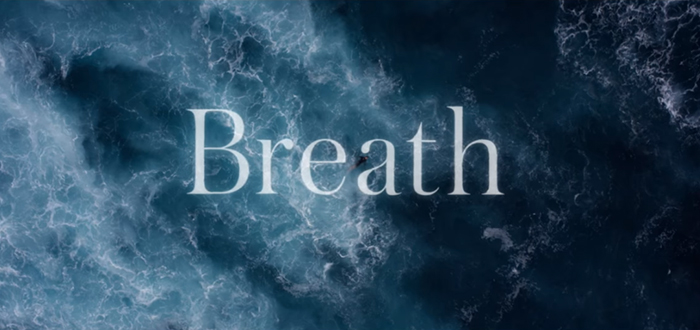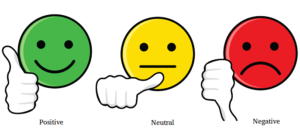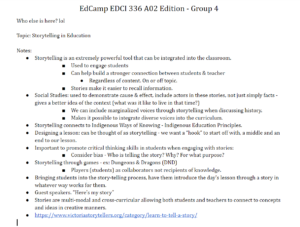GET OFF YOUR SCREEN AND HAVE A LISTEN!
Instead of subjecting you to more screen time this inquiry will be presented in an audio format. We didn’t want to contribute to the problem so take a listen and enjoy!
Hello and welcome back to another edition of the IROSS blog! Today will be talking about inquiry and education!
As you may already know inquiry is an incredibly engaging form education that almost requires a student to have a passion about they are learning. It is a student centered and student choice lead style of learning.
I really enjoy inquiry learning in theory but when it came time to do my own free inquiry projects I struggled and often saw them as a chore. I initially thought it was the topic I chose, or maybe that I was feeling pre-occupied with my other assignments. I just couldn’t quite figure out why it wasn’t necessarily working for me until Trevor Mackenzie showed up as a guest lecturer in 336. He showed the class one infographic that made all my problems with free inquiry come crashing into my head! This is that infographic:

Now I realized that I had never done Inquiry learning in school and initially I thought that shouldn’t be a problem. After completing university I always liked to believe I am semi-capable learner and I still like to believe that. What this infographic had showed me though was I was thrown directly into the DEEP END! No water wings, no life jacket, no kiddy pool, no swim lessons, no belly boards, no practice, no training! I was a just a young learner thrown into the deep end of the pool by an older sibling on sweltering hot day! At first I was ecstatic and happy as I flying through the air thinking about how great learning about something new and at my own pace. Then I hit the water! It was sweltering hot day so the immediately the water felt refreshing and all my friends are in the pool too! And that’s when I realized I had forgotten how to swim properly, sure I was capable of swimming but I wasn’t going any where fast and everything seemed like a struggle and a little bit scary. I realized that I had skipped all the other stages of inquiry learning and started in the deep end. Inquiry learning just like most styles of learning requires sequence and structure and if you try to bite off more than you can chew, choking is a possibility. I think the struggle I had with Free Inquiry was that I didn’t go through the motions.
That’s my reflection on inquiry based education, when you skip steps you might stumble.
Till next time,
IROSS
Week number 7 of meditation!
This will be my final meditation post! I have learned a lot about myself through meditation. Let me share what I am comfortable revealing.
First off meditation can be a roller coaster! Some days it caused my heart rate to increase from 72bpm to 112bpm (all measurements taken from/by my fitbit watch). and other sessions I saw a decrease in heart rate. Meditation either amplified what ever I was feeling that moment or dampen what ever I was feeling, I don’t know if that was just the amount of will power that day or my stress levels.
Meditating early in the morning was a dangerous move for me! I am happy I have alarms set for when my classes start because there was a couple mornings I fell asleep while meditating and woke up almost late for my first class!
My perception of time feels broken! I have had 5minute meditation sessions that felt eternal and 10 minute ones that felt like a blink of the eyes.
What I did concretely learn was that meditation was a good way for me transition activities. Especially when I wasn’t looking forward to my next task. Once I meditated I always felt more accepting of what was about to come!
I also learned that I have no best position to meditate in. Somedays the sitting on the couch or chair felt best and other days it was laying on the floor eyes on the ceiling.
Tomorrow I will be posting a video of my meditating!
Thank you for following my Free Inquiry Project on meditation.
I hope you all enjoyed.
Till who knows when,
IROSS
Hey there! Here we go again with some more meditation!
Week 6 is about updating my plan. Now normally I was meditating and following the schedule that was posted in week 4 but over time I found myself having quick meditation sessions outside those timeslots.
I decided I would write down and acknowledge my random meditation sessions. I found myself having the odd meditation session laying in bed before going to sleep. Meditating before some of my physical activity sessions when I wasn’t particularly feeling amped up and really needed a moment to gather the motivation to push myself. Surprisingly enough I even had the odd meditation session before commencing to work on some of my assignments or chores.
Some days they were just a quick 1 minute before getting out of the house or out of the car. I just attempted to acknowledge all the times I felt taking a moment to breath would be beneficial.

Till next time,
IROSS
Hello and Welcome to week 5 of my Meditation Journey!
Week 5 is about assessment.
Week is 5 is all about assessment! Assessing my meditation progress, assessing my free inquiry process! Assess, assess, and reflect! Reflections coming in a future blog post near you!
Assessing meditation sessions qualitatively! As we all know and remember qualitatively is being described with descriptors and quantitatively means being described with numbers! Now we all know meditation is about the process and not the result. Or at least that’s how I view meditation!
Now I choose to assess my meditation sessions this way because I thought it would be too time consuming and difficult to break down my meditation sessions into numbers and I am meditating to get in touch with myself not stress myself out. Just like my planning I kept meditation extremely simple as I did not want to create any reason for me to avoid meditating or make it some what of a chore.
The way I have been assessing my mediation has been assessing my mood or mental state before and after I meditate. I will be using 3 categories for describing mood, Neutral, Positive and Negative.
Meditating with expectation can throw off the process. It is more process orientated than goal oriented.

I will honestly save I experienced every combination. Some days I was feeling blissfully ignorant and meditation brought reality crashing in and some times I was feeling irrationally negative and meditation helped me see the positive. Many days there was no change what so ever.
Till next time,
IROSS
Welcome to Week 4 of my Meditation Journey!
Week 4 is about planning! This is where I share and explain my thought process on how I have planned out my meditation schedule.
I decided to keep it very simple, as I would not want to stress or beat myself up over meditation because I feel that would be very counterproductive!
I will be aiming to meditate for 5 minutes 0-30minutes before my first class and for 5 minutes 0-30 minutes after my last class.
| Monday | Tuesday | Wednesday | Thursday | Friday | Saturday | Sunday | |
| Pre-class Meditation | 11:00-11:30 | 8:00-8:30 | 7:00-7:30 | 8:00-8:30 | No Class | No Class | No Class |
| Post-class meditation | 4:00-4:30 | 4:00-4:30 | 5:30-6:00 | 4:00-4:30 | No Class | No Class | No Class |
As you can see now I do not have class on Friday! 
I think meditation should be easy! So I kept it fairly easy on my self to commit to this schedule. This schedule might be subject to future changes!
Till next time,
IROSS
Hello and welcome back to another edition of the IROSS blog! Today will be talking about the relationship between some of my favourite things! Education and Games!
First off I would like to talk about
GLOBAL SCHOOL PLAY DAY! Here is a link to their website.
https://www.globalschoolplayday.com
Here is a TED talk explaining some of the concepts behind Global School play day!
https://www.youtube.com/watch?v=Bg-GEzM7iTk&feature=youtu.be&list=PLc695sWmPGpybRuxvaPgvwd2s8eGqAWYj&ab_channel=TEDxTalks
I was fortunate enough to partake in a global play a couple of years ago! It was a completely free and unstructured day of play for the students. I was able to watch young students (Elementary School) make up their own games, establish their own rules, and generally have a wonderful day. The following day the students were required to reflect on their experience about play day and what they had learned. A lot of the students I worked with talked about the enjoyment they had, how wonderful it was to have a day with their friends and classmates without parents or teachers controlling them but what stuck out to me the most how was many students talked about respect and regulations. This was a little bit of a surprise to me until I also reflected upon the day. A lot of the kids made up new games to play with their friends and schoolmates, but the playground unlike the classroom has different consequences. When one does not follow the rules in the classroom there is a possibility they may be reprimanded by the teacher, but when a kid doesn’t follow the rules to a made up game, the other youth may choose to play without them. Now as a supervisor during play day it was my job to make sure students don’t fight but it wasn’t my job to solve their problems. It was a very effective and educational day for both teachers and students and I would highly recommend it to all school.
Rhetorically I would to ask “Why do humans stop making up their own games as they age?”
Now back to games in education. Growing up I loved math games, gamified class reading competitions, in class jeopardy and I even played scientific vocabulary hangman in university. It was always a sure-fire method to get me engaged in class or with the material. I truly believe games can be a successful part of education.
Things get a little tricky when it comes to video games and education. Personally I learned an immense about communication while partaking in 40 person raids in a game called World Of Warcraft (Vanilla version). The 40 man raid required 40 people working together and communicating instantaneously in an extremely organized manner for time periods usually around 4-8+ hours and during this time period one individual mistake can ruin all the progress made by the collective 40 people. It quickly taught me a lot about the importance and power of organized communication as I had to listen to multiple different people while completing organized tasks. Interestingly enough years down the road when I working with grade 7 students at educational retreat World of Warcraft was brought up by some students which instantly allowed me to bond with them through the love of the game. These students told me World of Warcraft was how they fine tuned their reading and typing skills. We conversed about how important those skills were to the game and how it motivated them and offered a method of practice.

Although I mentioned some benefits to unstructured games led by students those games were educational on a social-emotional level but they weren’t directed towards any learning objectives and the same could be said about most of the off-the-shelf video games that are played.
Which brings me to a question:
What is more important in gamification teaching academic content or academic skills?
Now well I don’t believe that educational video games should be a mandatory part of public education, I do believe they can be supplemental.
Welcome back to another edition of the IROSS BLOG!
Hyflex learning. Initiate challenge mode. An education style that requires a little bit more from everyone. Student’s can either be 100% online or fully present and you must be able deliver everything else in-between as well! AND you’re going to “provide the most equitable delivery format to students that align with their needs and learning preferences”. Oh and let that be subject to change at a moment’s notice! As a teacher wannabee this sounds next level. Sure the theory was digestible and even made good sense too. A student centered approach where the teacher’s concern should be “how to ensure students meet their needs as learners and adapt to changing conditions and dynamics”. I am happy to believe all of this is possible and I acknowledge how important this bridge is but I struggle to visualize what this would look like, let alone trying to imagine what this would be like or look like as someone without practical professional experiences.
I enjoyed some of the educational tips that were leaked in week 7. Some take aways I had from the Hybrid Flexible Class article and learning podcast were:
-Preference doesn’t always accommodate reality. Basically meaning sometimes the best methods aren’t always realistic.
-Ask for it! If you want something specific you must ask for it. Do not assume anything, be straight forward and ask for it.
-Establish those rules, construct the class. With flexible and hybrid learning, foundational ground rules become extremely important for setting everyone up (Teacher included) for success.
-The assumptions that go along with “it’s just not working” in regards to asynchronous education. This little tidbit really hit home with me. Any professional that has had to switch to a bit more online or asynchronous work has to think twice before saying “It’s just not working” because that means you believed it was working before and I mean most people would like to believe or be given the benefit of the doubt that your prior work was successful. That may not be the case for certain professionals just because we were accustomed to something doesn’t mean it was the optimum method. This made me think about how there are possible benefits from how the education industry responded and adapted to the pandemic. I look forward to the new equilibrium that will be forged in education because of the disturbance caused by the pandemic.
On short side note:
I am happy they choose the name hyflex over flebrid.
Building figures with 3d modeling was lots of fun with Tinkercad! I was slightly frustrated at how the coordinate and shape data were tricky to manipulate. My enjoyment would have been increased if I was able to insert and manipulate figures by the use coordinate locations and data instead of the use of drag, drop, and stretch.
Till next time!
IROSS
Hello and welcome back to another edition of the IROSS blog. This week will be about teachers teaching teachers through what is called an Edcamp!
What is an edcamp you say!? It is professional development day designed to allow teachers to explore and propound new ideas through educational teacher collaboration. A powerful display of how teacher networks can work together to improve and expand knowledge and professional practice.
The edcamp topic I was interested in and put forward was “Story Telling in Education”. Something I have always enjoyed, have always been interested in, and believe to be one of the most powerful educational tools. People have been telling, listening and learning from and through storytelling for as long as people have been around and I actually have no facts to base that opinion on but I am going to stand by it. I love stories, whether they are educational, fictional, personal, and everything else in between, they are an effective means to convey knowledge, engage the audience and express ones experiences. When I look back at my education the things I remember best were stories told to me, and not so coincidentally I express and share my memories in story format.
Luckily enough there was 5 people who were also interested in storytelling in education and we came to together through the power of the internet to partake in a zoom based edcamp. Immediately we all started sharing stories of how story telling has impacted our lives and educational journeys, not a big a surprise at all here! The edcamp platform allowed for all subject areas to share a stage and explain how they use stories to connect the students to the education. Social studies teachers telling stories of history and politics, fine arts teachers telling stories to express and incite emotions, science teachers telling stories to engage and connect students with the information and many more. Storytelling is an extremely powerful tool that be can be used effectively for increasing student engagement, information retention and relationship building.
Now the edcamp experience was an enjoyable one but unfortunately it was restricted to a zoom format. Based on my experience here are some of the pros and cons that I think exist within a Zoom based Edcamp.
Pros of Zoom based Edcamp
-Accessibility! Anyone from anywhere can share and learn educational tools!
-Technology based! (Making it easy to document, share media, collaborate (Remember the SAMR model)
-Human management! Zoom has mute functions and breakout rooms which mitigates interruptions
Cons of Zoom based Edcamp
-Human management, only 1 person speaks at a time, harder to get up and switch topics, zoom interactions are different from those set in reality.
-Less atmosphere, I am just sitting at home and not actually sharing a space with my peers and colleagues.
-Different style of activities and engagement, no physical or hands on activities.
-More screen time
All in all my zoom based edcamp on storytelling experience was a positive one! I would very much partake in more of them. It is a fantastic method for networking and learning. I would definitely use an edcamp to find myself educational mentors!
Here is the product that was created by the story telling edcamp.

Till next time!
IROSS
Hello and welcome back!
Week 5 is all about innovation in education! (I love how that rhymes)
Somedays I perceive things as challenges because they represent a certain process I don’t always look forward to doing! For example sometimes writing this blog feels like a chore but then I think that it’s only just communicating and I enjoy communicating but what I don’t always enjoy is writing!
Luckily people have been innovating how we communicate our understanding for a long time and also applies to education.
So this blog post will be an audio post!
I hope you enjoyed your listen! Now you can put a voice to these words!
Till next time,
IROSS
Recent Comments